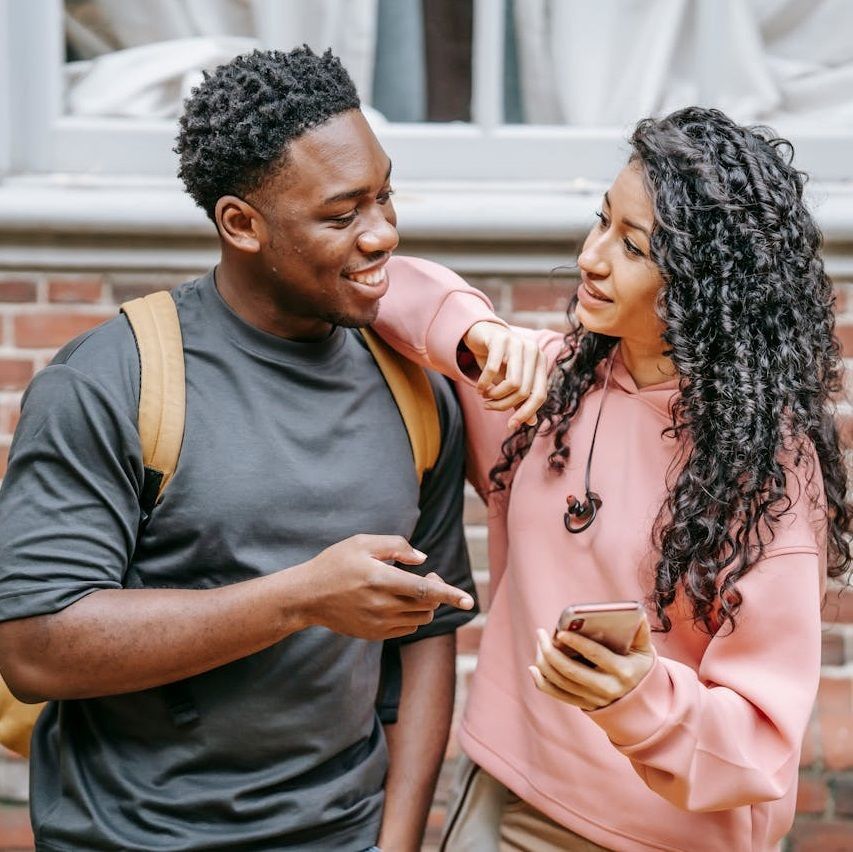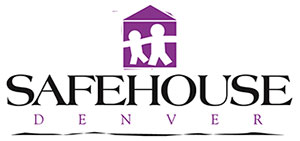
Domestic violence can happen to anyone at any age, and within dating relationships, young people ages 16 to 24 experience the highest prevalence of abuse. At SafeHouse Denver, the Youth Advocacy Program (YAP) supports these young survivors as they navigate away from red-flag behaviors and embrace healthy relationships.
There have been iterations of this youth-focused content in the past, but under the leadership of Emily Triolet, an Advocate at SafeHouse Denver, the program itself is coming of age. Triolet has worked with several agencies over her eight years in the human services field, and she traced her passion for this line of work to a situation during her time as a student at the University of Alabama. When another student in her dorm was assaulted and had a negative experience trying to report it, Triolet and her friends decided to raise awareness on the campus about victim-blaming.
This social justice mindset has carried through to her current work on the YAP, which serves individuals from ages 12 to 25 (ages 12 to 14 require parental consent). In 2023, 20% of domestic violence fatalities in Colorado involved people under the age of 26, which was a notable increase over previous years. This speaks to the comfort level of survivors reporting in Colorado, as well as police properly identifying these fatalities as domestic violence-related. The YAP intends to reverse that trend by including primary survivors (those who have experienced abuse) and secondary survivors (those who have witnessed abuse and/or who are supporting someone who has experienced it) in its material. As we reverse this trend and create a safe space for survivors, we expect to see an increase in reporting numbers.
The core of the program is two-fold for young people as well as adults. For youth, one-on-one counseling is available at the Counseling & Advocacy Center (CAC), with support groups available at the CAC and in schools that wish to participate. For adults, staff consultations are offered for direct service providers and people who regularly work with youth populations. For both demographics, presentations can be tailored to help educate about topics like healthy relationships and media portrayals of abusive behaviors.
"We recognize that there is a level of distrust with youth," Triolet explained. "There was a huge study done by Rutgers School of Social Work in which 80% of the teens who responded said they would rather report to a friend than a trusted adult. Of those people, only 33% actually said anything. It's very important to be meeting youth on their level, putting our face out there, and establishing ourselves as trusted adults."
The YAP counts Warren Village, a transitional housing program; The Center on Colfax, a haven for LGBTQ+ resources; and Florence Crittenton Services, an alternative school for single mothers, among its formal partnerships. Additional partnerships are being developed with schools and community organizations. "School can be a safe space for [young people] if home is not safe," Triolet said. "We also recognize that not everybody can go to school safely, and that's why it's important that we partner with youth programs outside of the schools as well."
Red Flags
When it comes to that sense of safety, there is little difference between how abuse manifests in dating relationships compared to domestic relationships. "With teens, we do see a lot of the same behaviors – that control, that manipulation," Triolet described, "and the isolation, where a person choosing to use abuse will say, 'You don't care about me if you're spending time with your friends' or 'You're not putting enough time into our relationship, so you need to stop doing x, y and z.' Which isolates somebody from those support systems."
She pointed to social media as a place where stalking, jealousy, and possessiveness are normalized and tend to go unchecked, especially on platforms like Snapchat where messages can be set to disappear after being read. Fortunately, Google is proactive about helping remove negative content from its search results, from inappropriate photos to disparaging text. Stalking logs are also essential to document every incident while tracking behavior and escalation.
An additional challenge is that young people may not even realize they're in an abusive dating relationship because of the false perception that violence is only physical. "What we hear from clients all the time is 'Well, it's not abuse. He never hit me.' Them asking 'Why does it feel bad?' is the big question," Triolet stated. "If your relationship feels bad, there's probably something else going on." You deserve to feel safe in your relationship.
Social dynamics can also be exploited in this age range when friend groups get pitted against each other. The abusive partner may threaten to share private information or lie about something the survivor said or did, which can result in that person losing their friends in retaliation for ending the relationship or not doing what they were told.
Green Flags
Amid all of the negative possibilities, it's important to look for qualities that signal a positive dating partner and a healthy relationship. Triolet identified several attitudes and behaviors that should be embraced:
- Somebody who listens to you
- Somebody who respects your time and space
- Somebody who encourages your support systems
- Somebody who wants you to be happy
- Somebody who has your best interests at heart
- Somebody who is liked by your friends and people you trust
- Somebody who has great relationships with others in their life (i.e. friends, family, teachers)
- Somebody who upholds their own boundaries and support systems
A good relationship with someone feels like "they are fitting into your life more like a puzzle piece instead of trying to mash in there," Triolet said. "Also, if they're willing to have difficult conversations with you or express their feelings – openly, without making it your problem. 'Do you have space for this or time for this?' or 'I have this going on in my life. Thank you for supporting me.' Not 'I have this going on in my life. You need to fix it.'"
Talking To Youth
So what does all of this mean for adults who want to talk to the young people in their lives about dating violence? "It's a hard conversation. I really want to validate that. The most important thing is to approach it with curiosity; just to ask more questions," Triolet continued. "Not to make statements of judgment, not to say 'You need to leave [the relationship] now' or 'You need to do this,' because then you're affecting control when it's already being taken away from them by somebody else."
Here are some helpful guiding questions that Triolet encouraged:
- Why do you think that's your fault?
- Why are you still going on dates with this person?
- What are things that the other support systems in your life do that make you feel good?
- Is this person also doing those things?
"Of course, relationships can be difficult – you go through things together, there's conflict – but no relationship is supposed to feel like work all the time," Triolet summarized. "Relationships are supposed to fill your cup, not drain it."
Talking To Adults
On the flip side, youth have their own barriers when talking with adults about dating violence. Young people disclosing abuse becomes more difficult because some adults are mandatory reporters, and youth survivors may not know that. "If they want the system involved, just be very straight-up with an adult that this is happening and they don't know what to do," Triolet elaborated. "If the system is not safe to work in, talk to an adult and say 'If this happened...' or 'In a hypothetical situation, if this was going on, what could I do?' That's a really great way to navigate that and still talk to a trusted adult."
Being prepared on both sides to have these discussions will facilitate hope, healing, and empowerment. "I would encourage young people to just be honest: that it's OK to not know and to be scared, and also to know that there are no stupid questions," Triolet concluded. "Please ask more questions!"
Learn more about how SafeHouse Denver supports young people through the Youth Advocacy Program. If you are experiencing dating violence or domestic violence, or if you are trying to support a survivor in your life, please call 303-318-9989 to talk with an Advocate.

